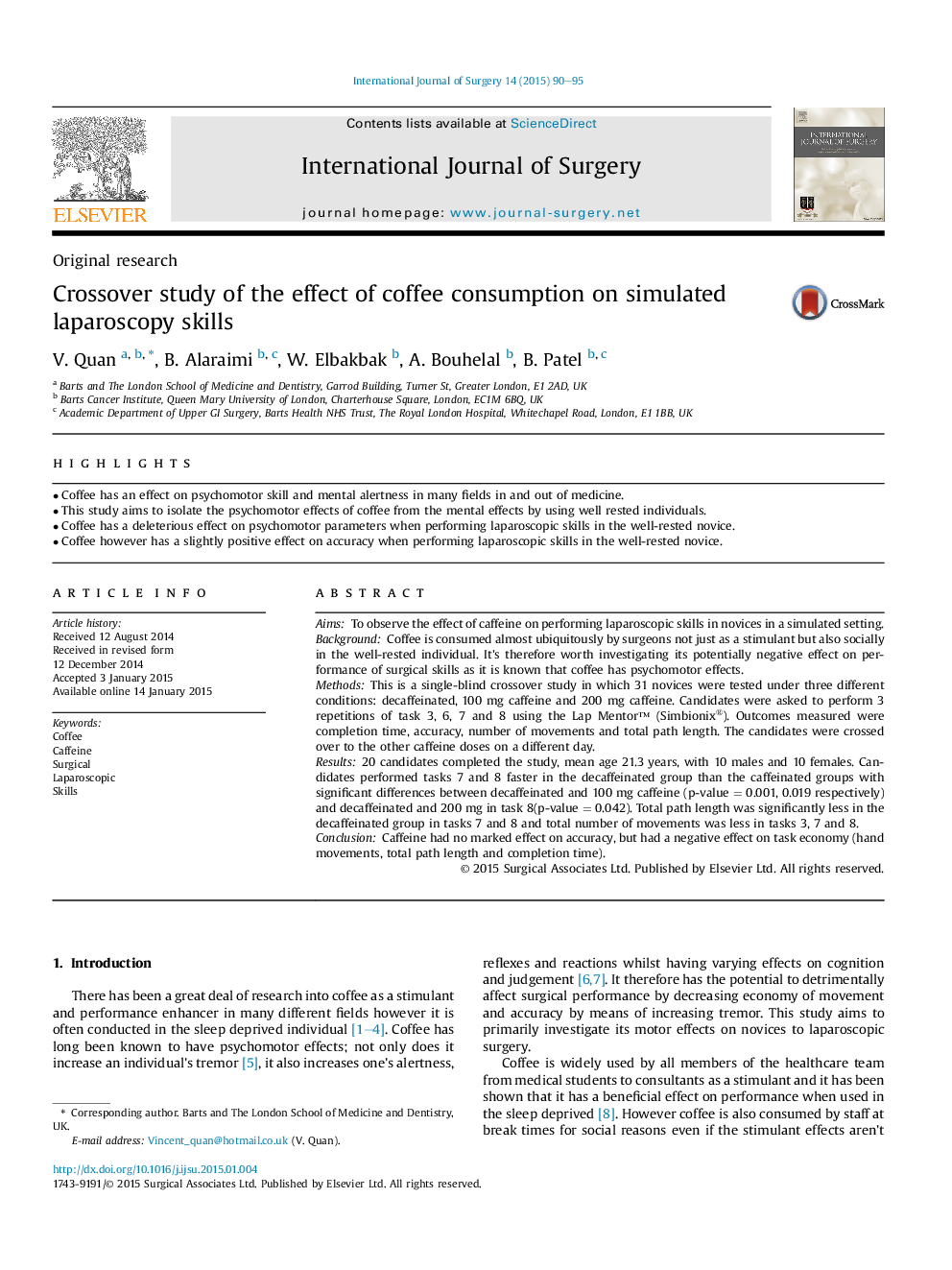| کد مقاله | کد نشریه | سال انتشار | مقاله انگلیسی | نسخه تمام متن |
|---|---|---|---|---|
| 4285922 | 1611980 | 2015 | 6 صفحه PDF | دانلود رایگان |
• Coffee has an effect on psychomotor skill and mental alertness in many fields in and out of medicine.
• This study aims to isolate the psychomotor effects of coffee from the mental effects by using well rested individuals.
• Coffee has a deleterious effect on psychomotor parameters when performing laparoscopic skills in the well-rested novice.
• Coffee however has a slightly positive effect on accuracy when performing laparoscopic skills in the well-rested novice.
AimsTo observe the effect of caffeine on performing laparoscopic skills in novices in a simulated setting.BackgroundCoffee is consumed almost ubiquitously by surgeons not just as a stimulant but also socially in the well-rested individual. It's therefore worth investigating its potentially negative effect on performance of surgical skills as it is known that coffee has psychomotor effects.MethodsThis is a single-blind crossover study in which 31 novices were tested under three different conditions: decaffeinated, 100 mg caffeine and 200 mg caffeine. Candidates were asked to perform 3 repetitions of task 3, 6, 7 and 8 using the Lap Mentor™ (Simbionix®). Outcomes measured were completion time, accuracy, number of movements and total path length. The candidates were crossed over to the other caffeine doses on a different day.Results20 candidates completed the study, mean age 21.3 years, with 10 males and 10 females. Candidates performed tasks 7 and 8 faster in the decaffeinated group than the caffeinated groups with significant differences between decaffeinated and 100 mg caffeine (p-value = 0.001, 0.019 respectively) and decaffeinated and 200 mg in task 8(p-value = 0.042). Total path length was significantly less in the decaffeinated group in tasks 7 and 8 and total number of movements was less in tasks 3, 7 and 8.ConclusionCaffeine had no marked effect on accuracy, but had a negative effect on task economy (hand movements, total path length and completion time).
Journal: International Journal of Surgery - Volume 14, February 2015, Pages 90–95
